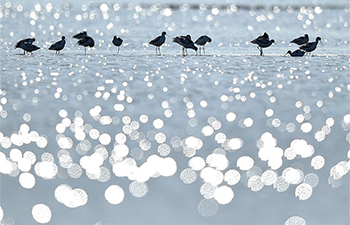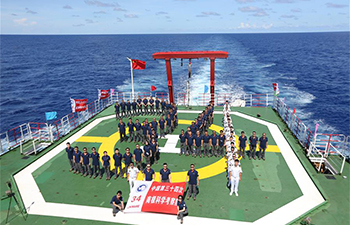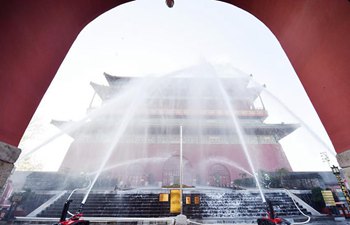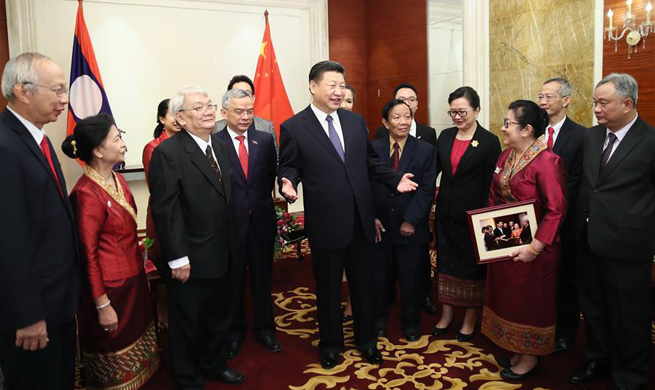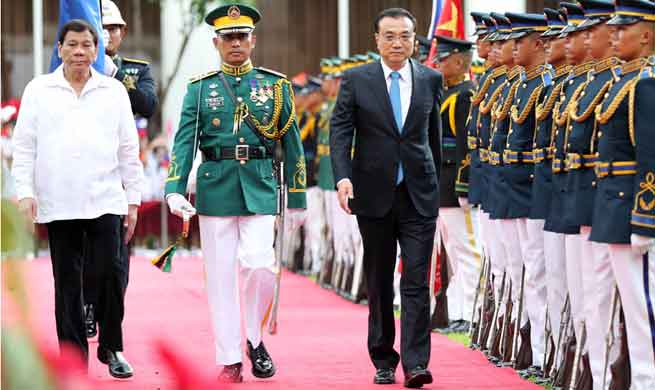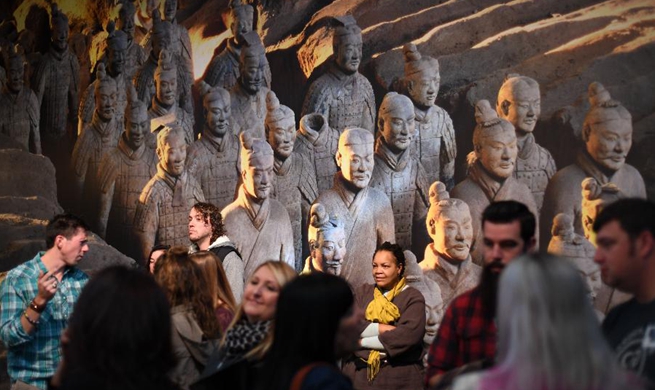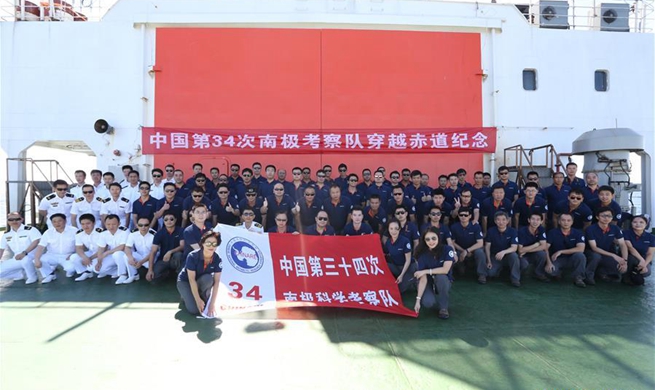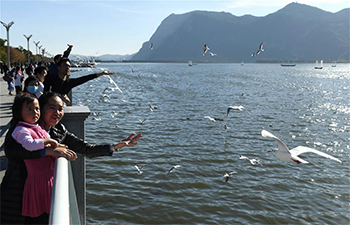HAVANA, Nov. 15 (Xinhua) -- Cuban and foreign experts on Wednesday offered scientific evidence denying the alleged "acoustic attacks" on U.S. diplomatic personnel in the island, an incident which has harmed the relations between the two former Cold War foes.
In an online forum promoted by a committee of experts which was created to investigate the incidents, several foreign and local scientists explained that it was impossible to execute such attacks upon selected individuals without being detected or affecting larger groups of people.
According to the U.S. State Department, 24 diplomats or family members based on the island were harmed by the alleged acoustic attacks which caused hearing loss, dizziness, fatigue and cognitive issues.
"This type of selective attack has never been heard of and I wonder what can be the scientific cause of them because no one has an explanation. The appearance of sudden hearing loss without an audible source is very unusual," said Colleen LePrell, audiologist and professor at the University of Texas, at the forum.
Washington provided Cuban investigators with 14 recordings of the sound it says the victims heard during the attacks but the study concluded they did not contain anything that could damage human health.
"The recordings provided by U.S. authorities do not cause acoustic trauma or permanent hearing losses as they are below 90 decibels." said Dr. Carlos Barcelo, a physicist on the investigation team.
An audible sound needs to be very loud or above 100 decibels to have a negative impact, he said, yet only the victims heard the noise, not their families living in the same houses, nor their neighbors.
"There is no scientific explanation that all the symptoms are linked to an audible sound. There is no way an acoustic device can cause damage without using an audible sound because the inner ear cannot be stimulated enough to cause hearing loss," said Andrew Oxenham, a psychologist at the Auditory Perception and Audio Cognition Lab of the University of Minnesota.
The experts and the criminal investigation forensics team said the recordings provided by U.S. investigators are similar to the sounds of crickets and cicadas.
"Of the 14 recordings supplied by U.S. authorities, none of them had enough intensity that could result in damage to human health and provoke the alleged symptoms," said Dr. Jose Manuel Villar, head of the medical investigation team.
The foreign experts said it is impossible to link any of the symptoms to acoustic attacks and that the lack of evidence provided by Washington makes it harder to find a scientific explanation to the incidents.
The United States has not formally accused Cuba of carrying out the attacks, but President Donald Trump said last month he believed Havana was responsible.
In September, Washington withdrew more than half of its staff from its embassy in Cuba due to security reasons and also expelled 15 Cuban diplomats who worked at the island's embassy in the U.S. capital.
The U.S. State Department also issued a travel warning telling Americans not to visit the country as some of the attacks allegedly occurred in hotels.






